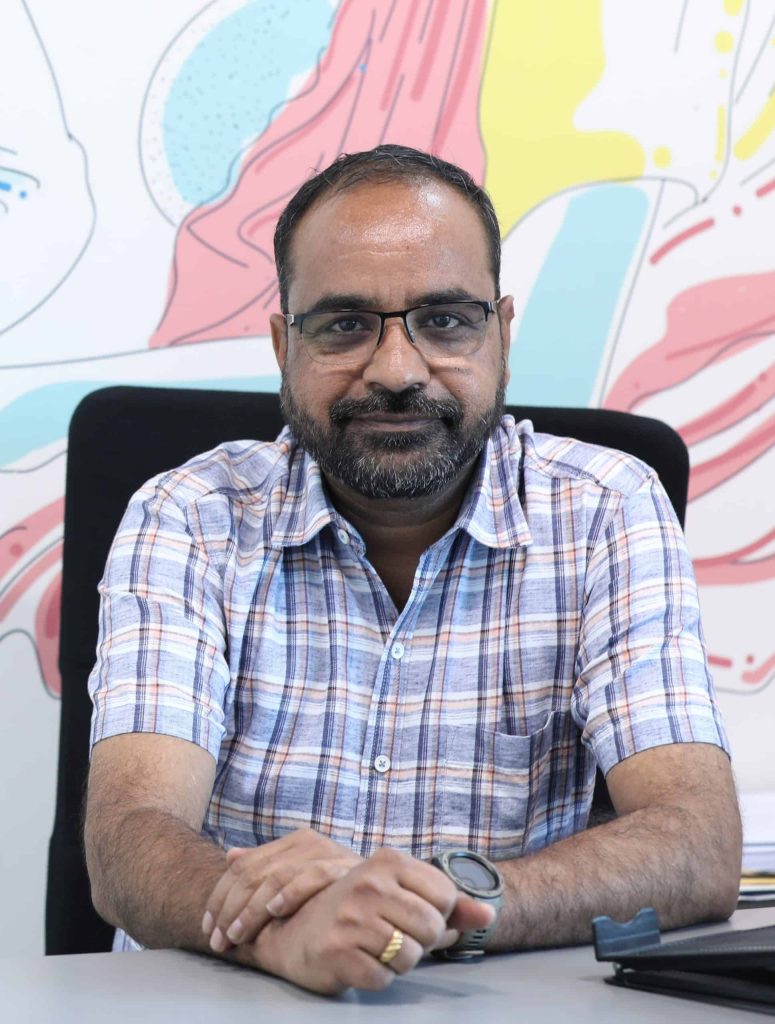Khartoum, the capital city of Sudan, has been severely affected by the ongoing violence and political unrest in the country, making it one of the worst affected areas. The city has witnessed widespread clashes, resulting in the loss of hundreds of lives. Anand Kumar Thakur, an experienced logistics coordinator working with Doctors Without Borders/Médecins Sans Frontières (MSF), recently encountered the devastating consequences of conflict firsthand. His story sheds light on the difficulties faced by humanitarian aid workers in conflict zones and the numerous challenges they confront.
April 15 started as a usual Saturday morning for me in the MSF staff house, situated in the heart of Khartoum. I was sipping my coffee when someone called me to say, “Look out of your window.” I got up, saw smoke billowing from some buildings, and heard heavy gunfire in the distance. Little did I know that it was just the beginning of the extreme challenges ahead of us.
My name is Anand Kumar Thakur, and I am the logistics coordinator for the MSF team in Khartoum. I was based in Sudan since November 2021 and my primary responsibilities included management of supply chains of drugs and medical equipment and other resources as well as maintaining the safety of our staff and assets.
Rumors had circulated for months about tensions regarding the political transition and movement of troops, but we never anticipated the ferocity with which the conflict would strike Khartoum. The regions where MSF operated had been relatively untouched until now although they have a history of violence, and the sudden turmoil in the capital caught us off guard.
As chaos engulfed the streets, the team gathered on the first and ground floor of our apartment building. Within the next few hours, the once-quiet neighborhood transformed into a war zone. Gunfire echoed through the air constantly and we could see armed groups moving across the locality with heavy artillery.

The week that followed turned into a harrowing rollercoaster of fear and uncertainty, as the scale of the violence grew. The number of attacks on hospitals and warehouses kept increasing. For several hours every day, I would coordinate with my team to verify information, evaluate risks, and update our teams on the latest developments. I had to prioritize the safety of everyone involved. The decision about each colleague’s movement across Khartoum was being taken after proper scrutiny.
It was a relief when we managed to establish contact with the International Committee of the Red Cross (ICRC) staff house across the street and managed to secure some water and diesel from them.
We discussed all the logistics with our teams in Nairobi. Through careful coordination and with the support of some authorities, an evacuation plan was put in place. After the initial evacuation from Khartoum, I stayed for three more weeks in the country and then finally moved out of Sudan. The strenuous departure took us 2 days of road travel and nearly 36 hours of air travel to finally reach our homes.
Back home, we found solace in the psychosocial support offered by our medical team. The constant exposure to violence, living under siege, and the feeling of being trapped in an unpredictable environment can take a toll on one’s well-being.
I have been working with MSF for the past fifteen years and in the last five years, I have been on assignments to Nigeria, Ethiopia, Sudan and South Sudan. I have witnessed some extremely tense circumstances in that duration but the intensity of what we witnessed in Sudan is unprecedented.
The bond that I forged with the local people in Sudan runs deep. I feel an unwavering obligation to stand by them, to amplify their voice in the face of hardship, and to help them against all odds.
MSF’s core work is to serve in times of humanitarian crisis. Currently, medical and surgical teams from MSF are working alongside Sudanese medical teams and volunteers, treating patients at the Bashair Teaching Hospital on the south side of Khartoum. Many of them have suffered gunshot wounds or injuries resulting from explosions, consistent with ongoing airstrikes and shelling in the built-up areas of the capital.
Since the escalation of the conflict MSF has been working in 12 states. We also have surgical and medical teams working in the Turkish hospital, in Umbada hospital and in Al Nao hospital in the capital. The ongoing violence has severely increased the medical needs in the city and other regions of Sudan. I hope that I get the opportunity to go back and serve the people to ensure that they receive the care that they need.












